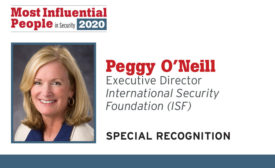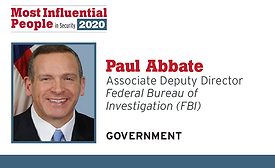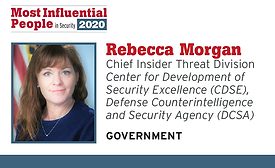Security Leadership and Management
The most influential people in security 2020
Who is leading the way for enterprise security professionals? These 22 thought-leaders are making a difference.
September 3, 2020
Special Recognition
Security's Most Influential People in Security 2020 - Paul Timm, PSP
Vice President of Physical Security Services, Facility Engineering Associates
September 3, 2020
Special recognition
Security's Most Influential People in Security 2020 - Peggy O’Neill
Executive Director, International Security Foundation (ISF)
September 3, 2020
Special Recognition
Security's Most Influential People in Security 2020 - Paul Goldenberg
CEO, Cardinal Point Strategies
September 3, 2020
Government
Security's Most Influential People in Security 2020 - Paul Abbate
Associate Deputy Director, Federal Bureau of Investigation (FBI)
September 3, 2020
Security's Most Influential People in Security 2020 - Chief Carmen Best
Chief of Police, Seattle Police Department
September 3, 2020
Government
Security's Most Influential People in Security 2020 - Rebecca Morgan
Chief Insider Threat Division Center for Development of Security Excellence (CDSE), Defense Counterintelligence and Security Agency (DCSA)
September 3, 2020
Sign-up to receive top management & result-driven techniques in the industry.
Join over 20,000+ industry leaders who receive our premium content.
SIGN UP TODAY!Copyright ©2025. All Rights Reserved BNP Media.
Design, CMS, Hosting & Web Development :: ePublishing












